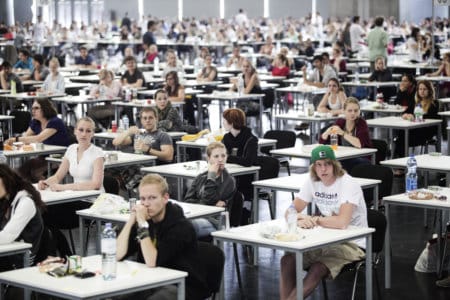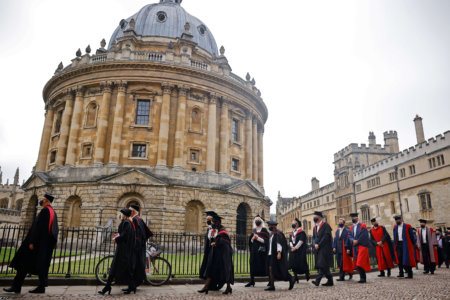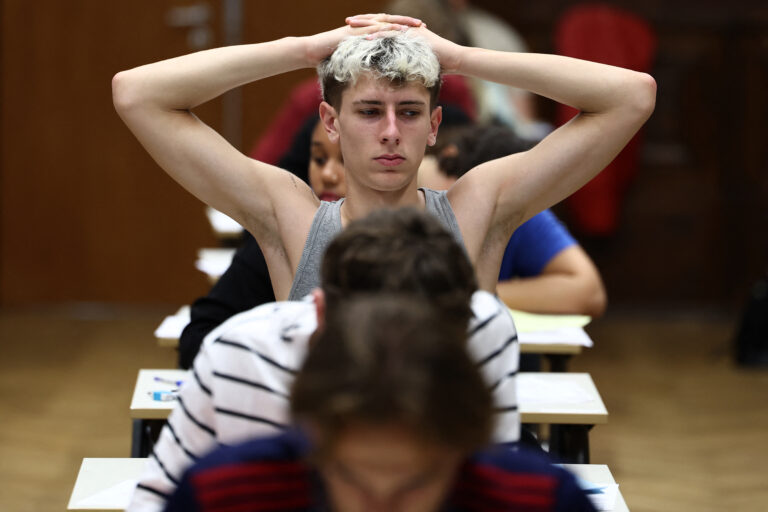
Cheating scandals are titillating to read about when it’s not about you.
Let’s be real – some of us considered cheating our way to good scores before.
Why not? After all, it’s easy to sneak a peek at a classmate’s test paper or hide your phone somewhere. Why worry about memorising quadratic formulas when you smuggle in tiny answer sheets or write them somewhere on your body?
Plus, exams aren’t the only place where cheating is rampant. Coursework, assignments, essays and more can be cesspools of dishonesty. Some even hire third-party services to complete their work for them.
A humorous case involves a teacher failing their student for hiring someone to write their assignment for them; the student had mistakenly – read, stupidly – emailed the assignment over along with the invoice from the third party. Talk about shooting yourself in the foot.
But students aren’t the only culprits.
This Redditor recalls a time when a teaching aid at their university sold exam answers for US$1,500 a pop. Aside, there are admission officers who are paid to allow prospective students to get into prestigious schools and universities as well. Even celebrities have paid for falsified grades and bribed officials to get their children into a good school.
In short, no one party is guilty.
But hey, we at Study International don’t condone cheating, even though students are certainly getting creative with their methods.
The 21st century has invented new ways to cheat
Honestly, cheating is a challenge.
You need good preparation, advanced skills like tiny handwriting or sleight of hand, and, most importantly, the ability to keep a poker face.
The most popular methods include writing on water bottle labels or etching tiny letters on fingernails. Some even staple their cheat sheets on the inner ridges of their caps or tape them to their thighs — all they need to do is pull up their gym shorts or skirt when no one is looking.
But these hardly work anymore.
Now, most exam halls require you to bring a transparent water bottle, put your hands on the desk before your paper, or even conduct bag and clothing checks. Some even ban long-sleeved clothing – students must fold them up to elbow-length – or accessories like caps and watches.
And that’s why students are getting creative.
A Taiwanese Quora user describes how a student in his class would pretend to have a cold during exams and wear a mask. He would then cough for A, sniffle for B, clear his throat for C, and blow his nose for D. And it worked.
Those blessed with a large, ample chest may sneak in cheat sheets and formulas in the gap between their chest. Admittedly, it’s somewhere where people won’t usually look, but you may attract weird looks if you peek inside your top too often. Risky, risque, or both? You tell us.
And, of course, with the COVID-19 pandemic came a new era of online classes and exams, which brought forth a whole new wave of cheating methods. Aided now by technology, more students are cheating – a survey by Educational Testing Service reports that 75% of today’s high school students resort to cheating.
Indeed, technology has come far.
What’s stopping you from checking answers on an incognito browser or having your textbook or iPad open while taking an exam online? Some even copy-paste directly from ChatGPT for their assignments or tests – a bold but pretty stupid move.
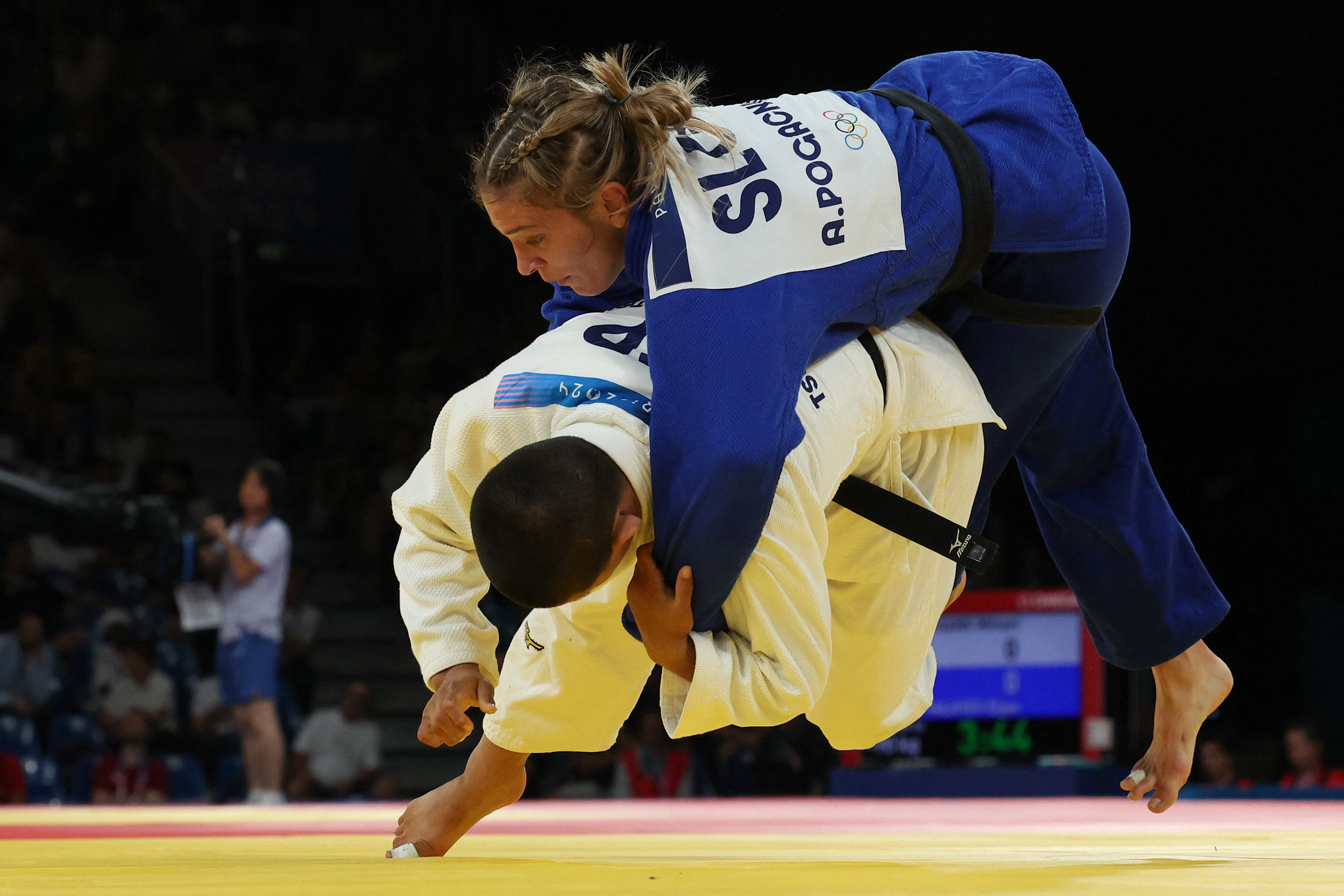
Cheaters and anti-cheating methods are constantly wrestling for the upper hand. Which do you think will prevail in the end? Source: AFP
At this point, we should remind you that you shouldn’t be getting any ideas. As new ways to cheat surface, there are also new ways to prevent and detect cheating.
AI detector tools are now a dime a dozen – although they are known to flag human writing as artificially written. Arguably, it doesn’t take much for an experienced individual to spot AI-written content with a human eye.
Rather than using standardised test papers, some schools pass out different question sheets. All the content is the same, but the questions and passages would be randomised to prevent students from copying their desk neighbours.
Some schools and universities are using lockdown browsers to prevent students from accessing other websites, software, take screenshots or engage with any other unauthorised activity. Some even use eye-tracking software to ensure students’ eyes don’t wander anywhere offscreen.
These proctoring systems have improved since the end of the pandemic, as the first interactions weren’t always reliable. One student was flagged by an eye-tracking software for sobbing throughout the whole exam.
Perhaps rather than trying to prevent students from cheating, it’s time for academic institutions to revise their curriculum and testing methods. After all, students cheat because they’re unable to memorise everything before exams or are experiencing pressure to succeed. Yes, well, some may just be plain lazy too.
All this and more have paved the way for some of the biggest academic cheating scandals.
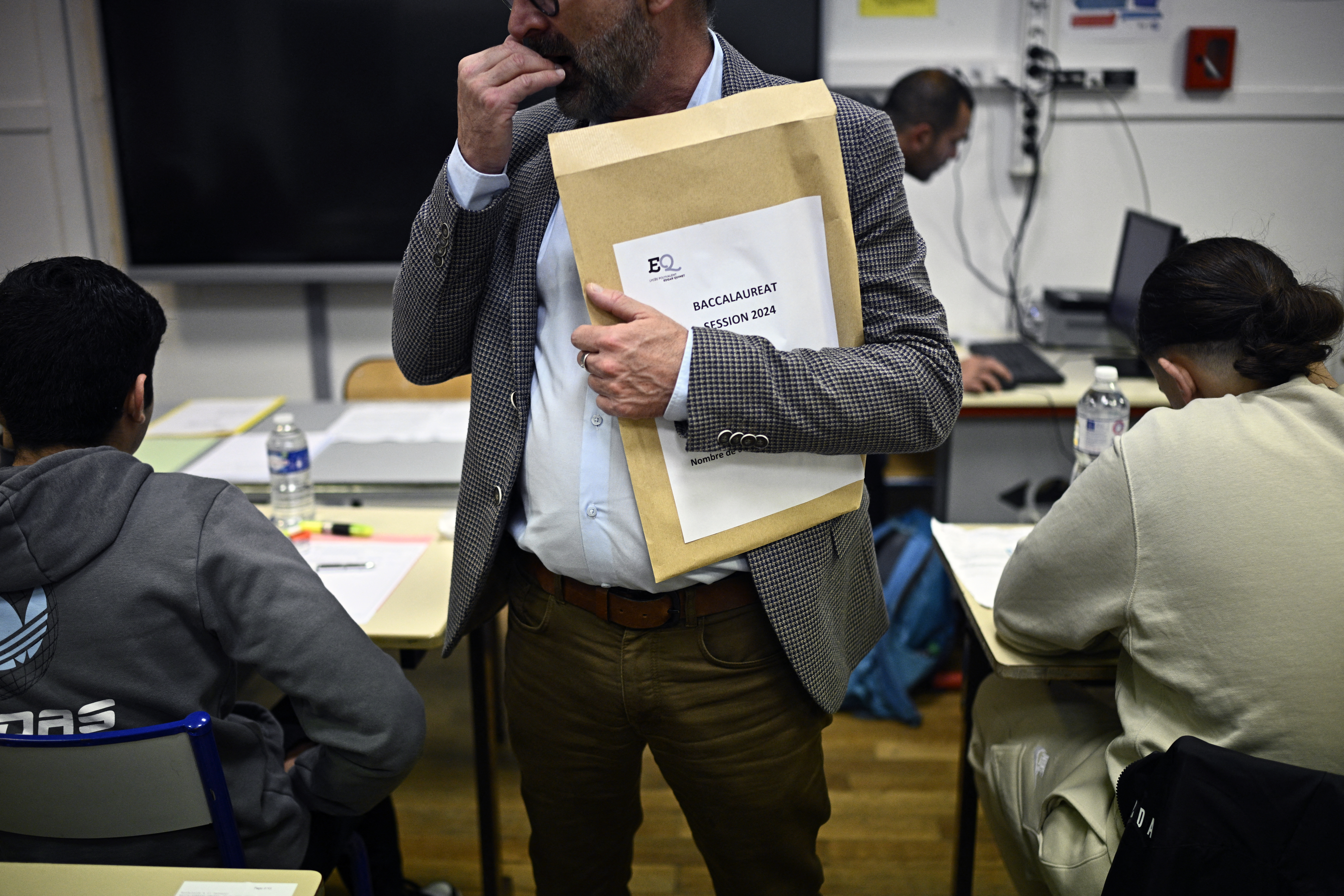
No matter how reliable they are, an invigilator doesn’t have eyes on the back of their heads. Source: AFP
Large-scale cheating scandals
The Harvard undergrad cheating scandal
In 2012, about 125 Harvard University undergraduates were investigated for plagiarism and other academic misconduct. At that time, it was the most widespread academic cheating scandal known to rock the industry – after all, Harvard is known for its prestige, and cheating wasn’t something that students were known to do.
A teaching fellow noticed suspicious similarities while reading through the students’ take-home exams during the summer. Back then, grades were determined by four take-home exams, and the 2012 exam had a short answer format, which spiked the difficulty. Over half of the submitted papers were suspected to have been involved in potential collaboration – arguments were identically structured.
They then brought the case to the Harvard College Administrative Board, which discovered that over half of the students enrolled in that particular class were guilty of cheating. The students were then forced to withdraw for a year.

Now that’s a leak that even a plumber can’t fix. Source: AFP
Leaks in the system
Exam leaks are among the worst types of cheating scandals, regardless of whether the paper was leaked before the exam or online.
In 2024, many students claimed that the entire PDF copy of the AS Level Mathematics Paper was leaked online – right before they were scheduled to take the exam. Cambridge International Education (CIE) launched an investigation and true enough, the paper was circulated by a significant number of students in Pakistan.
As a result, the paper was not marked, and students would only receive marks on the basis of their second paper and performance in other exams. This would even out the playing field, as those who had seen the leaked paper would have an advantage over their peers.
Unfortunately, another large leak scandal happened shortly after.
Admissions exams into medical schools in India – the National Eligibility cum Entrance Test (NEET) – were leaked, leaving the future of more than three million students hanging in the balance.
Exam results revealed irregular marks, with a dramatically high number of top scores. Soon after, the country had a wave of arrests for those suspected to be involved in the leaks, which were estimated to be multimillion-dollar cheating scams. Students have approached the Supreme Court and state high courts to stage protests and demand probes and re-examinations.
The Chegg epidemic
Students from the University of California Santa Barbara (UCSB) were revealed to have used Chegg and GroupMe to complete assignments and cheat on exams.
Chegg is known as an education and tutoring site offering resources for students.
It also offers a paid service called Chegg Study, where for US$14.95 a month, users could get access to a database of over 40 million textbook and exam questions and answers. Most importantly, users could submit photos of tests and assignments to freelancers in India, who would supply answers in less than thirty minutes.
GroupMe was used as a chatroom and message group to discuss answers and collaborate on tests.
An anonymous third-year sociology major explained that many students use the app to collaborate with other classmates: “One of my classes had really hard quizzes, and we would just ask for the answer to a question in the group chat when we reach the last attempt and get desperate.”
During the pandemic, Chegg’s stock price more than tripled. As Forbes put it – the US$12 billion company was getting rich by helping students cheat their way through COVID-19. But perhaps karma found its way – the company’s stock declined by 46% in 2023 thanks to the widespread usage of ChatGPT and other AI platforms.
After all, why pay for an outsourced expert when AI could do it in seconds?
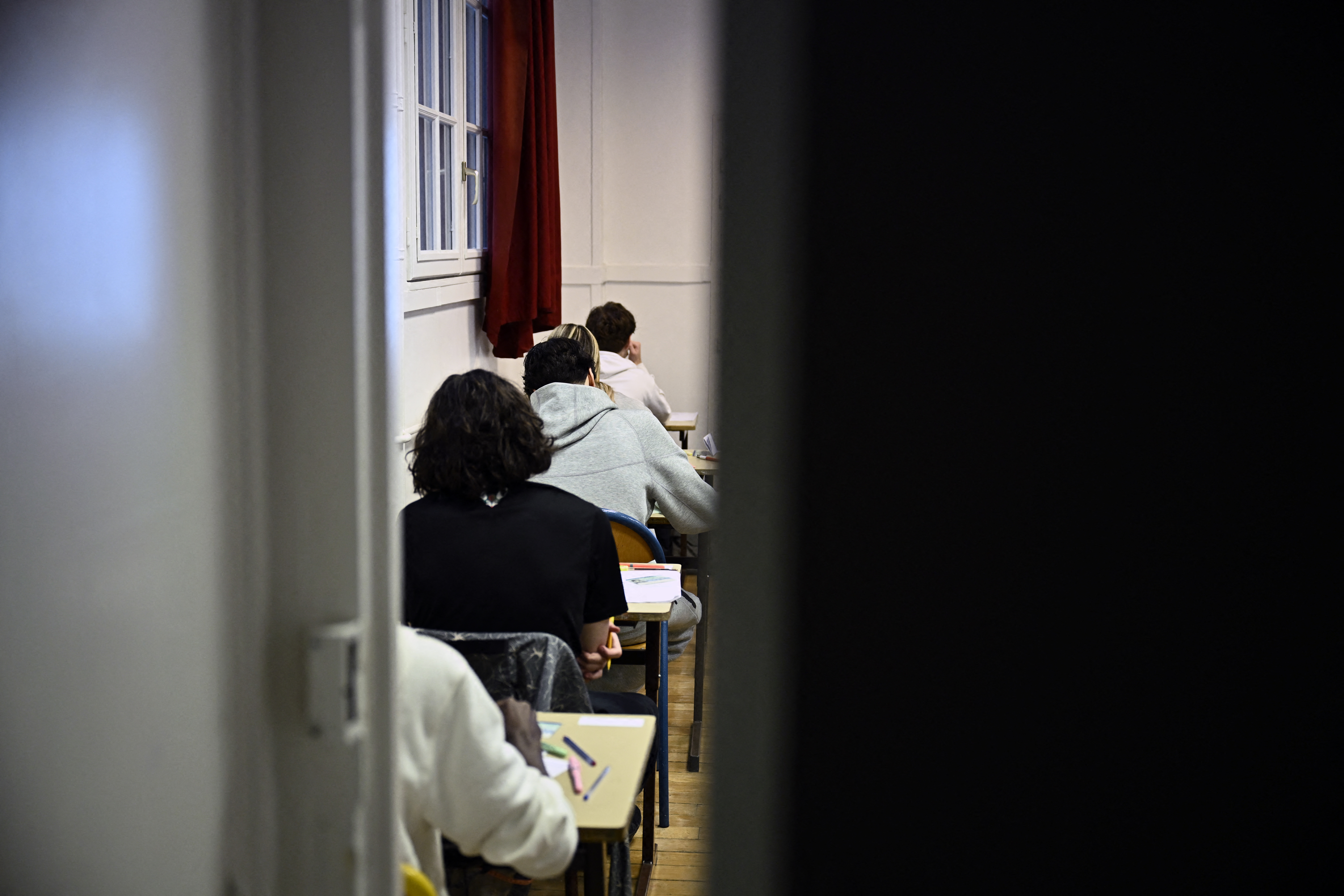
Imagine getting your exam answers right from the source. Source: AFP
In the business… of scamming
The Zicklin School of Business at Baruch College (NYC) is a place for aspiring business professionals. But just like in the business industry, underhanded scamming was rampant.
Former Zicklin administrator Chris Koutsoutis allegedly falsified the grades of about 15 students, including Wall Streeters whose firms paid their tuition. He not only padded MBA students’ grades but forged their professors’ signatures on grade-change forms too.
Unfortunately, no direct action was taken. The 15 students were still permitted to complete their work for their executive degree without facing any repercussions. The college released a statement saying that “appropriate personnel actions have been taken,” including placing the administrator responsible on leave.
Right after that incident was revealed, four ex-students came forward to sue the university for its involvement in rampant cheating and scamming. Accountants Stacy Morton and Omo Isenalumhe, financier Daniel Carr, and studio manager Yana Nibelitsky claimed they repeatedly complained to administrators about overt academic fraud, but nothing was done about it.
“[Cheaters] would sit next to someone doing well and would look at their papers,” Morton told The Post. “The professors knew.” She also added that the programme director at that time, Aloke Ghosh, would walk around the classroom reviewing students’ work and provide them with the correct answers.









